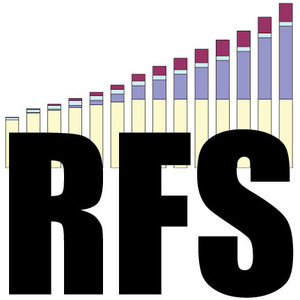NBB's RFS comments: Proposal fails to build on industry's success

July 12, 2016
BY The National Biodiesel Board
The U.S. EPA is significantly underestimating biodiesel’s capacity to deliver more advanced biofuel to U.S. consumers in the coming years, the National Biodiesel Board said in public comments on a pending renewable fuels proposal.
NBB called on the EPA to strengthen the biodiesel and overall advanced biofuel volumes under the proposal before it is finalized later this year. The final rule will establish annual volumes for various categories of alternative fuels that must be blended nationwide under the renewable fuel standard (RFS).
“We believe the evidence clearly shows that growing biodiesel and renewable diesel volumes will help achieve this administration’s goals for strengthening the economy, reducing carbon emissions and other costly pollution, and diversifying and strengthening fuel markets that are now dangerously dependent on petroleum,” NBB wrote to the EPA in a letter accompanying the official comments filed. “The RFS and specifically the biomass-based diesel program do this in a cost-effective way that benefits consumers through lower costs at the diesel pump.
Advertisement
Advertisement
“We can build on this success over the next decade,” the comments continue. “Unfortunately, this proposal, which calls for a biomass-based diesel volume of 2.1 billion gallons in 2018 and 4 billion gallons of overall advanced biofuels next year, fails to do so by severely underestimating the capacity for growth in the biodiesel and renewable diesel sector.”
Biodiesel—made from a diverse mix of resources such as recycled cooking oil, soybean oil and animal fats—is the first and only EPA-designated advanced biofuel to reach commercial-scale production nationwide. It has made up the vast majority of advanced biofuel production under the RFS to date. According to the EPA, it reduces greenhouse gas emissions by 57 percent to 86 percent compared with petroleum diesel.
Biodiesel and renewable diesel—a similar diesel alternative—fall under the biomass-based diesel category of the RFS, which is an advanced biofuel category intended to ensure that the policy also addresses the diesel fuel market, not just gasoline. Under the law, advanced biofuels must reduce lifecycle greenhouse gas emissions by at least 50 percent compared to petroleum fuels.
Advertisement
Advertisement
The EPA proposal would establish a 2.1-billion-gallon biomass-based diesel requirement in 2018, up only slightly from 2 billion gallons for 2017. Citing unused capacity and data showing that biomass-based diesel consumption this year will significantly exceed 2.1 billion gallons, NBB is calling for at least 2.5 billion gallons for 2018.
The higher biodiesel volumes would also allow the EPA to establish higher overall advanced biofuels, which includes not just biodiesel and renewable diesel but other fuels such as cellulosic ethanol. NBB is calling for an advanced biofuel volume of 4.75 billion gallons instead the proposed 4 billion gallons.
The RFS—a bipartisan policy passed in 2005 and signed into law by President George W. Bush—requires increasing volumes of renewable fuels in the U.S. fuel stream. Substantially expanded in 2007, the law requires increasing volumes of advanced biofuels in the coming years.
NBB is the U.S. trade association representing the biodiesel and renewable diesel industries, including producers, feedstock suppliers and fuel distributors. A recent economic study found that the industry supports nearly 48,000 jobs nationwide.
Related Stories
While final IRS guidance is still pending, the foundation of the 45Z program is well defined. Clean fuel producers should no longer be waiting; they can now move forward with critical planning and preparation, according to EcoEngineers.
The IRS on July 21 published a notice announcing the 2025 calendar-year inflation adjustment factor for the Section 45Z clen fuel production credit. The resulting adjustment boosts maximum the value of the credit by approximately 6%.
The U.S. Senate on July 23 voted 48 to 47 to confirm the appointment of Aaron Szabo to serve as assistant administrator of the U.S. EPA’s Office of Air and Radiation. Biofuel groups are congratulating him on his appointment.
U.S. Secretary of Agriculture Brooke L. Rollins today announced the reorganization of the USDA, refocusing its core operations to better align with its founding mission of supporting American farming, ranching, and forestry.
The U.S. Department of Energy’s Office of Energy Efficiency and Renewable Energy is soliciting public comments on a preliminary plan for determining provisional emissions rates (PER) for the purposes of the 45Z clean fuel production credit.
Upcoming Events










